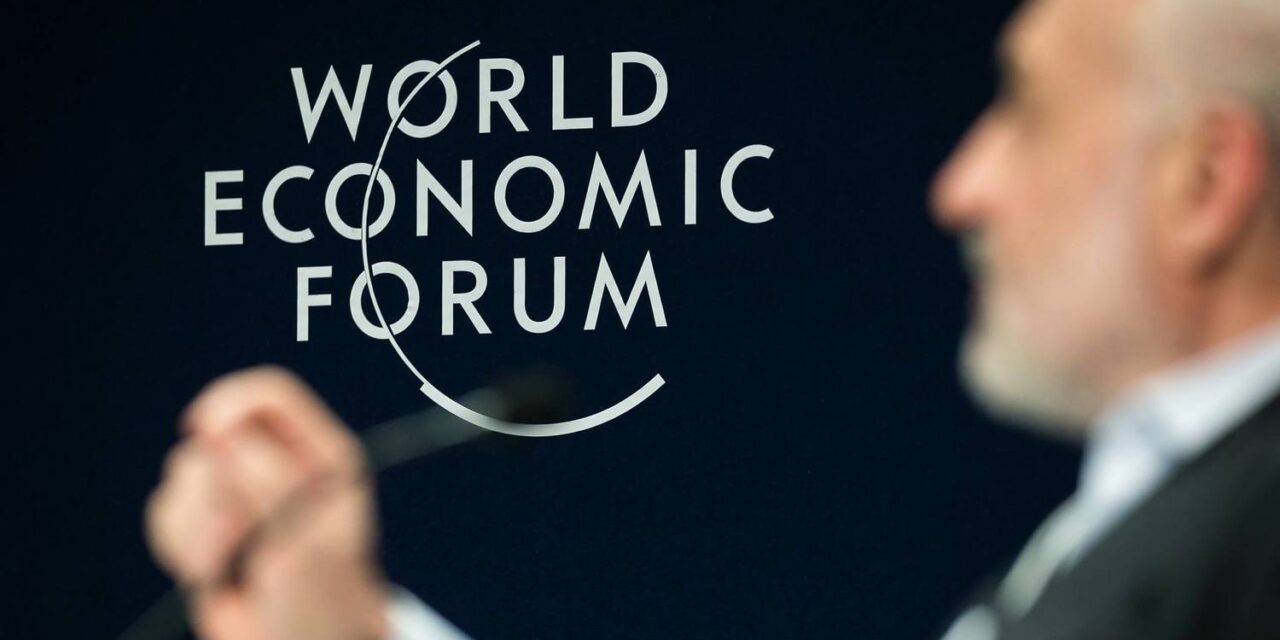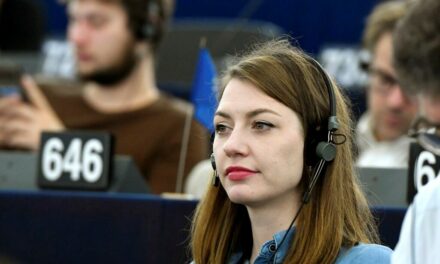Under the surface, the World Economic Forum continues to build its global empire with China.
Many people now know about the WEF, i.e. the World Economic Forum, whose leader is the 84-year-old German economist Klaus Schwab, who at the time was started on his globalist path by Henry Kissinger, who is now a hundred years old. Many people also know that perhaps the most powerful global forces are concentrated in the WEF, since the biggest giant companies, financial institutions, international organizations, media, actors of scientific life, etc. are both members of the WEF. Many people also know that the WEF usually holds its annual forums at the beginning of the year, in January, as was the case this year.
However, fewer people know that the World Economic Forum has another gathering, the summer Davos Summit, which was held in June. But you can rightly ask: why is it so important that the big boys who rule the world hold meetings even in the summer? Because this time the "summer Davos" did not take place in Davos, but in China, more precisely in Tianjin, June 27-29. between, and one of the main speakers at the three-day event - alongside Klaus Schwab, of course - was none other than the Chinese Prime Minister, Li Xiang. Incidentally, the event was the 14th meeting of the New Champions, at which a total of 1,500 global leaders, including 130 public figures, 800 business leaders and a hundred "innovators" - whatever that means - were present.
The title of the event was Entrepreneurial spirit - the driving force of the global economy, and it can be determined from the official texts that they strongly advocated the re-affirmation of globalization. It is obvious that they want to nip the efforts against globalization in the bud.
In the spirit of this, they primarily discussed how it is possible to build a world economy against the "headwinds" that enables the - specifically this word was used - "re-globalization". For example, according to Ngozi Okonjo-Iweala, Director General of the World Trade Organization (WTO) in Nigeria, there is a great opportunity to examine the areas, regions and countries that were left out of the first wave of globalization. But Klaus Schwab also spoke clearly when he said:
The world needs brave and visionary people who can harness the power of innovation and collaborate across sectors, regions, nations and cultures to create a more peaceful, inclusive and resilient future.
And the Chinese Prime Minister explained even more clearly that
We must move forward with history, consolidate the consensus on development, and continue our efforts to build an open world economy.
An open world economy - and of course China plays a prominent role in this. We acknowledge that he did not talk about the Popper-Soros open society - perhaps this would still have been strange, knowing the characteristics of Chinese political and social functioning.
I would highlight three main directions from the events of these three days. The first is to continue to implement the objectives adopted in Klaus Schwab's Great Reset, which is that the public and private sectors should become more and more intertwined, which in practice still means that technocracy will take over the states, the importance of nation-states is increasingly decreasing. This is already a clear, irrevocable goal for the WEF.
The second is that
China's role is increasingly valued in the eyes of the WEF, so much so that among the many agreements that were made during these three days, China played a prominent role, being present in most of the more than 25 initiatives. We need to pay particular attention to this development, as it is very important that one of the world's most influential globalist organizations, the World Economic Forum, envisions the development of the world economy in which direction, and on whom and which major powers it primarily relies on to achieve its ambitious, world-changing goals.
There is little doubt that there are some of us who do not see China's political and social system as the most democratic, and we would never, ever want to live in a Chinese social and political model. Of course, it is a different matter that trade and economic relations should and can be developed for us Hungarians - if only because we may still find ourselves outside the Union one day - but regardless of this, economic cooperation without ideology is necessary and important.
But at the WEF forum in China, it was not just about this, but about something that suggests that the concentrated, in many respects dictatorial political control of the WEF elite is not at all antipathetic, in fact. Let's remember that
Klaus Schwab envisions a beautiful new world as a noble goal, which would essentially be governed by a self-selected – and not democratically elected – technocratic, globalist elite, and all citizens of the world would live their peaceful, stupid everyday lives in a similar way, under similar conditions, so it would be created a world society in which there would be one great community in the void and nothingness.
In other words, an extremely atomized and uniform world society would emerge. And indeed, in this sense, China is much closer to Schwab, Soros, Rothschild, etc. to ideas, such as a country like Hungary, where people inexplicably like to be diverse, unique, and free.
Of course, many other things were discussed at the meeting in Tianjin, among other things it was strongly emphasized - oh, how surprising! - the imperative need for zero carbon dioxide emissions, and they urged the transition to zero-emission economic models. Yes, this is very encouraging, since no one has yet been able to convincingly prove that anthropogenic – that is, human – carbon dioxide emissions are the only and main cause of global warming and climate change. No problem, the Intergovernmental Panel on Climate Change, which is affiliated with the UN, has already pronounced this as a verdict, so this is scientific fact and slushy. There is no question, however, that a too rapid and unfounded transition to zero emissions would destroy the world economy almost immediately.
The issue of artificial intelligence (AI) could not be left out either, and this issue was even given a lot of weight. According to their formulation, responsible AI frameworks should be developed that enhance the benefits of generative AI while “addressing” the “challenges”. These are comprehensible texts, aren't they? And most of all, they are reassuring about the prevention of the dangers of artificial intelligence.
I left the most beautiful idea for the end. What else could this be but a comprehensive plan to introduce digital money. The official text is catchy: the representatives of the central banks together with the private sector examined the application of new innovations in financial affairs and proposed the principles of "global interoperability" of central bank digital currencies. This means nothing more than replacing cash with the global CBDC, i.e. the global digital currency, which fundamentally changes our lives - in a terrible way.
One of the most "interesting" people at the forum was none other than Eswar Prasad, professor of economics at Cornell University. He left no doubt that the
the biggest advantage of the upcoming CBDC will be that states can regulate and control what citizens buy with their digital money. Prasad, who used to be an expert at the International Monetary Fund (IMF), is particularly positive that people can be regulated to buy and live as their global leaders expect them to. The professor explained that one of the biggest advantages of digital money is the programmability of people.
The plans also include, of course, tracking people's "carbon footprints," so if their spending affects the climate, according to global leaders, they will be banned from making those types of purchases.
I won't continue. Rather, I will end all this with the great news that Kristalina Georgieva, the head of the IMF - who of course also belongs to the WEF - is working hard to introduce a global CBDC platform all over the world.
Could this really be the last fight we have to fight against them?
Source: Hungarian Nation
Cover image: World Economic Forum Facebook













